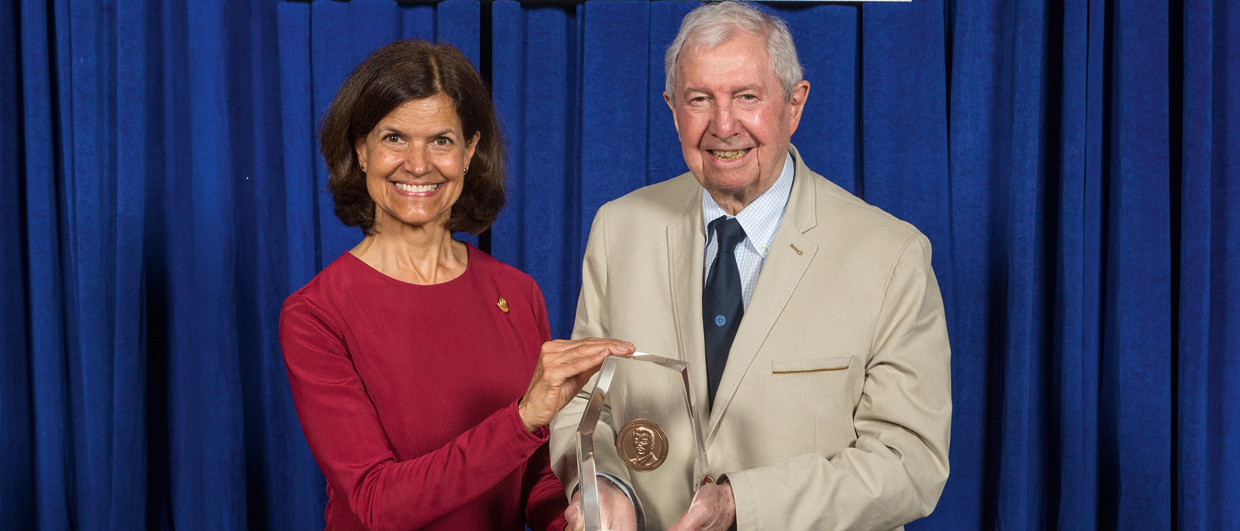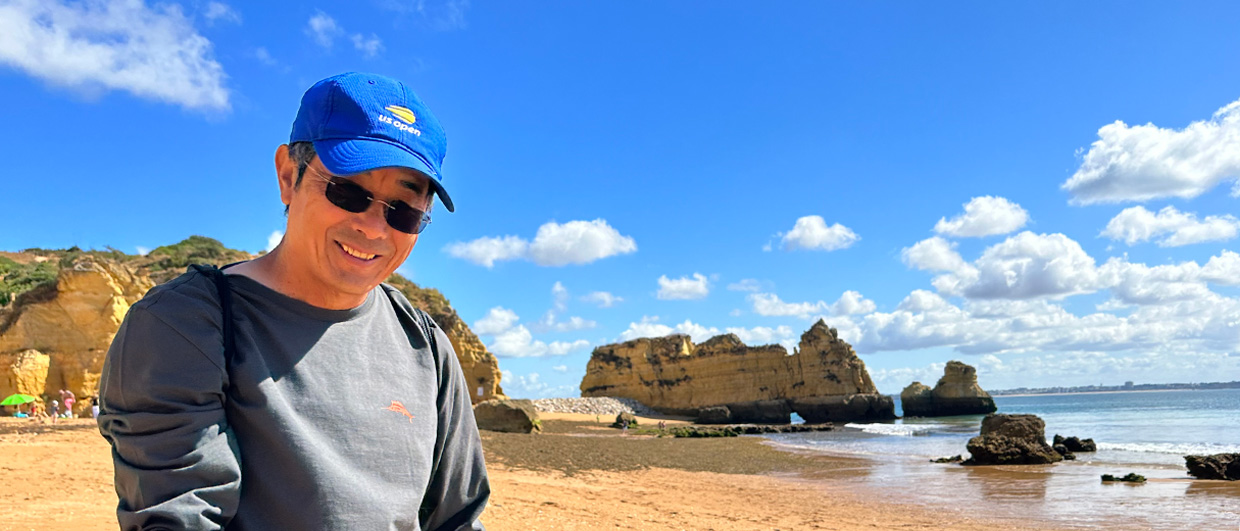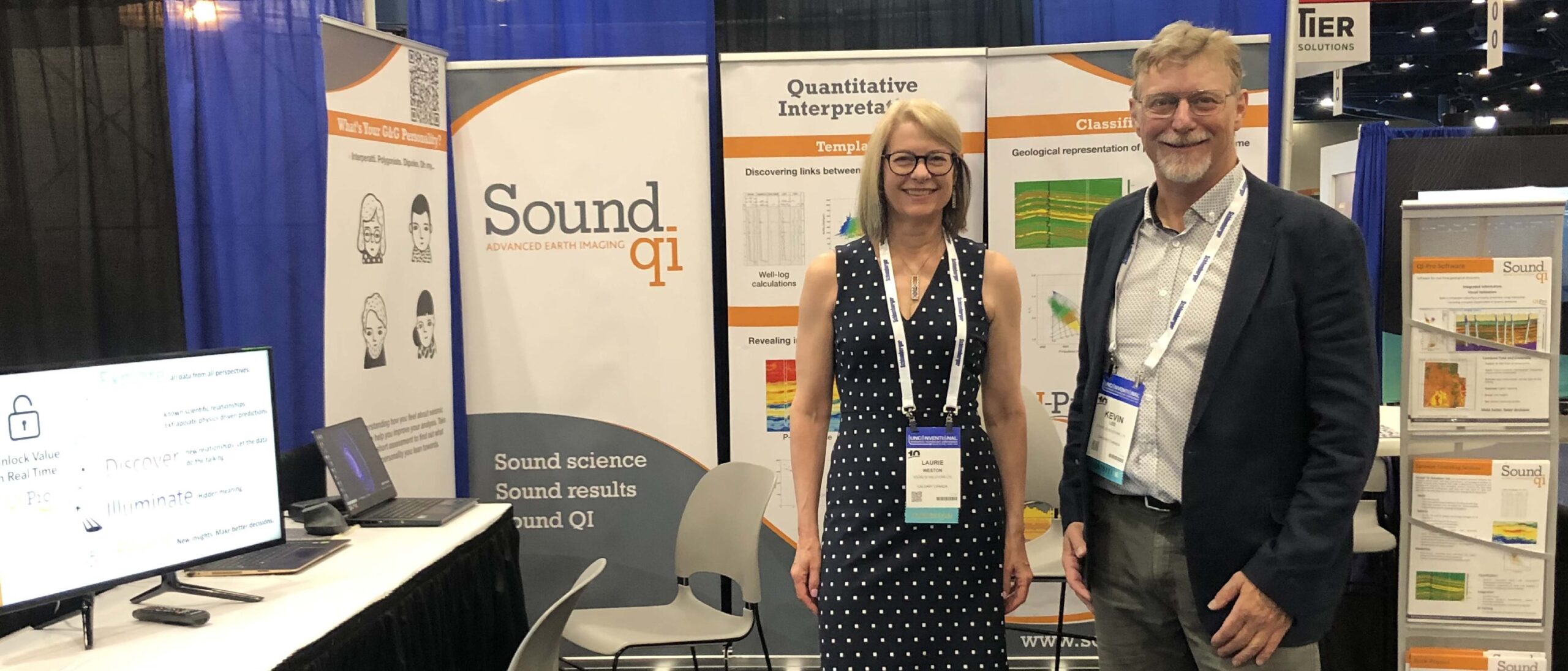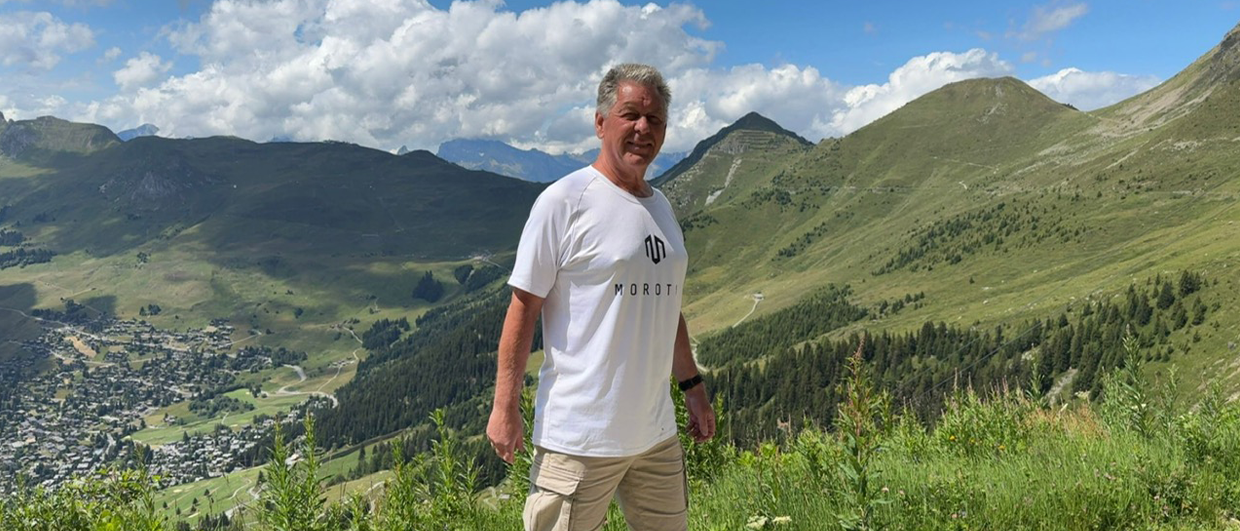According to Bernard Duval, geologists are the happiest people around because “we have fun!” He tells us about his long and illustrious career in oil and gas exploration, for which he was awarded the AAPG Distinguished Achievement Award in 1995.
Despite retiring over 20 years ago from French supermajor Total, Bernard Duval is still a significant figure in the exploration business; in fact, in 2019 he was the recipient of the AAPG’s Michel T. Halbouty Outstanding Leadership Award, given in recognition of outstanding and exceptional leadership in the petroleum geosciences. But like so many geologists, he found himself following this profession because he wanted to work outdoors.
“I like mountains – they have been good to me,” he says. “I was born in Nice, in the south of France, close to the magnificent scenery of the ‘arrière-pays Niçois’. I went to an elite military polytechnic school where I studied mathematics and engineering, but after a summer holiday in Morocco working for a small company in the oil industry I realised that a profession in petroleum would give me the chance to live and work outside. I had found geologists to be the happiest people in any company; they always seemed to have fun, so I decided that that was what I wanted to do!”
After a year of national service as a tank officer in the army, Bernard went to Grenoble University to study geology. Because of his engineering experience, he did an accelerated programme in geology in a single year, which involved a lot of field work and a dedicated instructor for his small group. “It was intense – but we also managed to spend quite a lot of time skiing and mountaineering while looking at rocks!” he says with a laugh. “This was in the Alps, so I learnt a lot, as not many places have this kind of complicated geology. If you can become familiar with such complex rocks, you can understand anything in petroleum geology. A geologist can never have enough field work.”
Gaining Experience
Bernard completed his studies with a master’s degree in petroleum geosciences at the École Nationale Supérieure du Pétrole et des Moteurs (IFP) in Paris and on graduating in 1958 he joined Total as a geologist. His first assignment was in Libya, as a field surveyor, wellsite geologist and log analyst; an excellent opportunity to quickly acquire geological and operational experience. He also met his wife, Francine – “my finest discovery” – during his time there. He spent most of his career with Total, except for a period in the late 1960s, when he was seconded to help the Venezuelan national company CVP create a ‘master plan’ for the exploration of that country, including a re-evaluation of the remaining hydrocarbon potential. “We spent a terrific three years in Maracaibo, preparing this plan and helping to train young Venezuelan geologists,” he says.
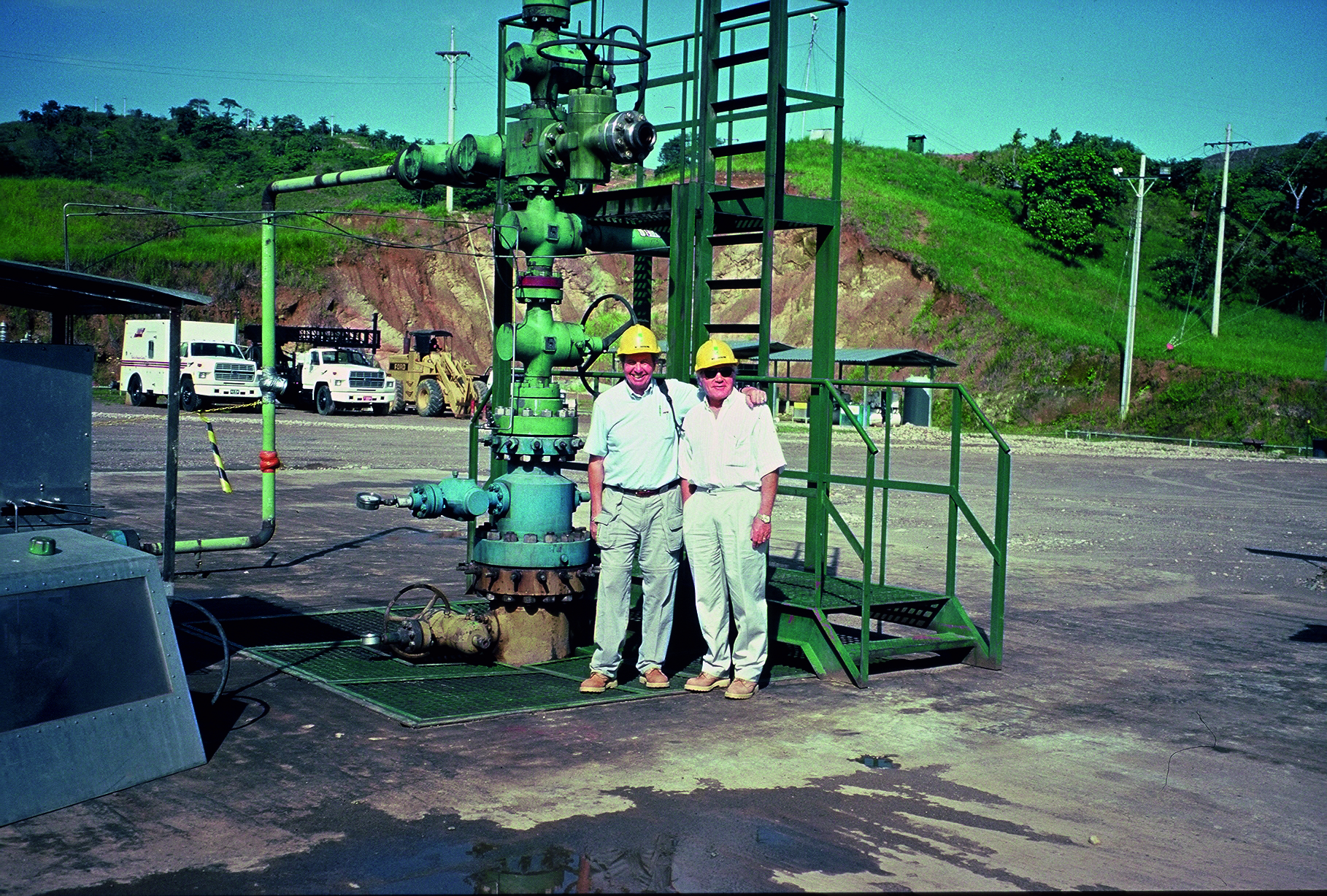
After Venezuela, Bernard returned to Total in Paris to join the New Ventures team, with various assignments and postings around the globe, including working on the opening of the Mahakam delta of East Kalimantan and initiating Total’s North Sea programme, before becoming E&P vice president of North America, based in Calgary.
“Strangely for a petroleum geologist, I also spent nine years in the mining business,” he adds. “I was working in Paris as the assistant to the E&P VP for Total, and I was asked to transfer to a subsidiary company that specialised in looking for uranium. I didn’t really know anything about mining and, of course, it involves very different geology – metamorphics, volcanics and the like – but I enjoyed it. This mining experience helped me a lot; it gave me a wider global perspective and an insight into a different work culture, as well as a chance to get to know new people and places, such as Australia, Brazil, Niger and Argentina. I found the experience of managing full-cycle activities in these countries enriching. I would advise anyone reading this to take any opportunity offered and to ‘get out of the box’!”
Using Experience
Bernard, who speaks fluent English and Spanish as well as his native French, obviously took his own advice and revelled in the opportunities that he was offered in his career, wherever in the world they were. “In this profession you need a lot of creativity; you have to learn to interact with a range of people from a variety of backgrounds and different countries”, he says. “I have been lucky enough to work in many wonderful places, including some, like Libya and Venezuela, that are no longer so easy to visit. We loved Canada, especially living in Calgary with the Rocky Mountains as a backdrop, so our two daughters, who were quite young then, could ski – although I did find the winters a bit long. And Libya was wonderful; the desert was magnificent and we also spent a lot of time visiting the beautiful Roman ruins.
“However, I think my wife and I left part of our hearts in Venezuela; we loved the country. It was the best time ever, in all senses. Technically I learnt a huge amount; we had access to so much material and documentation on petroleum geology, so that for me it was an academic exercise akin to a doctorate. We were able to spend a lot of time in the field, looking at myriads of rocks. And we were successful! After working on the project for a year we suggested that, instead of searching for stratigraphic traps on the edge of the Barinas Basin, our colleagues should drill in the deepest part of the basin to investigate the oil that we suspected had been trapped before the synclinal basin formed. They were dubious, but did as we advised and the first well in our programme found oil, the Caipe field.
“One of the most important things I learnt from my Venezuelan experience was the value of team work, especially multi-disciplinary teams, and I have tried to bring that to the rest of my career,” he adds. “Experience has also taught me that it is important to get to know all the people in your team, especially if you are the boss. It’s not just about how you build your team, it’s how you understand those people and then how you use them within the team that matters. I always spent a lot of time talking to people in my team individually, to find out what they liked and discovering where they would fit in best. A lot of these decisions are now done on paper or computer, but I think they should be done personally wherever possible.”
In 1985 Bernard was asked to return to the main Total E&P organisation as Senior Vice President – Exploration, responsible for the worldwide exploration strategy for the company, a position he held until his retirement in 1995. During this time he worked on upgrading the upstream portfolio of the company, resulting in some notable successes, such as the Cusiana and Cupiagua fields in Colombia and Peciko in Indonesia.
“An important aspect of this job was that I was responsible not only for the technical parts of the business but also for New Ventures negotiations relative to the acquisition of assets, where with my teams I was able to use my worldwide experience to be creative in the art of making deals,” Bernard explains. “For example, when we were looking to acquire acreage in the Bongkot area offshore Thailand we decided that the classic profit-sharing model would not work satisfactorily. Instead, we proposed a deal that included technology transfer and training and offered the eventual transfer of ownership of the asset to the NOC. This proved a successful approach, which we subsequently used elsewhere as well, and which demonstrates that one should not always ‘go by the book’, but be prepared to be flexible and to build constructive partnerships.”
Mentoring and Teaching
“Since my retirement in 1995 I have acted as advisor to various companies – I prefer to say mentoring them rather than consulting – which has allowed me to further enrich my experience. Companies have thanked me for my contributions, but of course such an experience also brings something new for me. It is interesting work, but also challenging, because I have to work alone and to do everything myself and rely on my own resources, without any staff to assist me like in the past; it can be very intense!
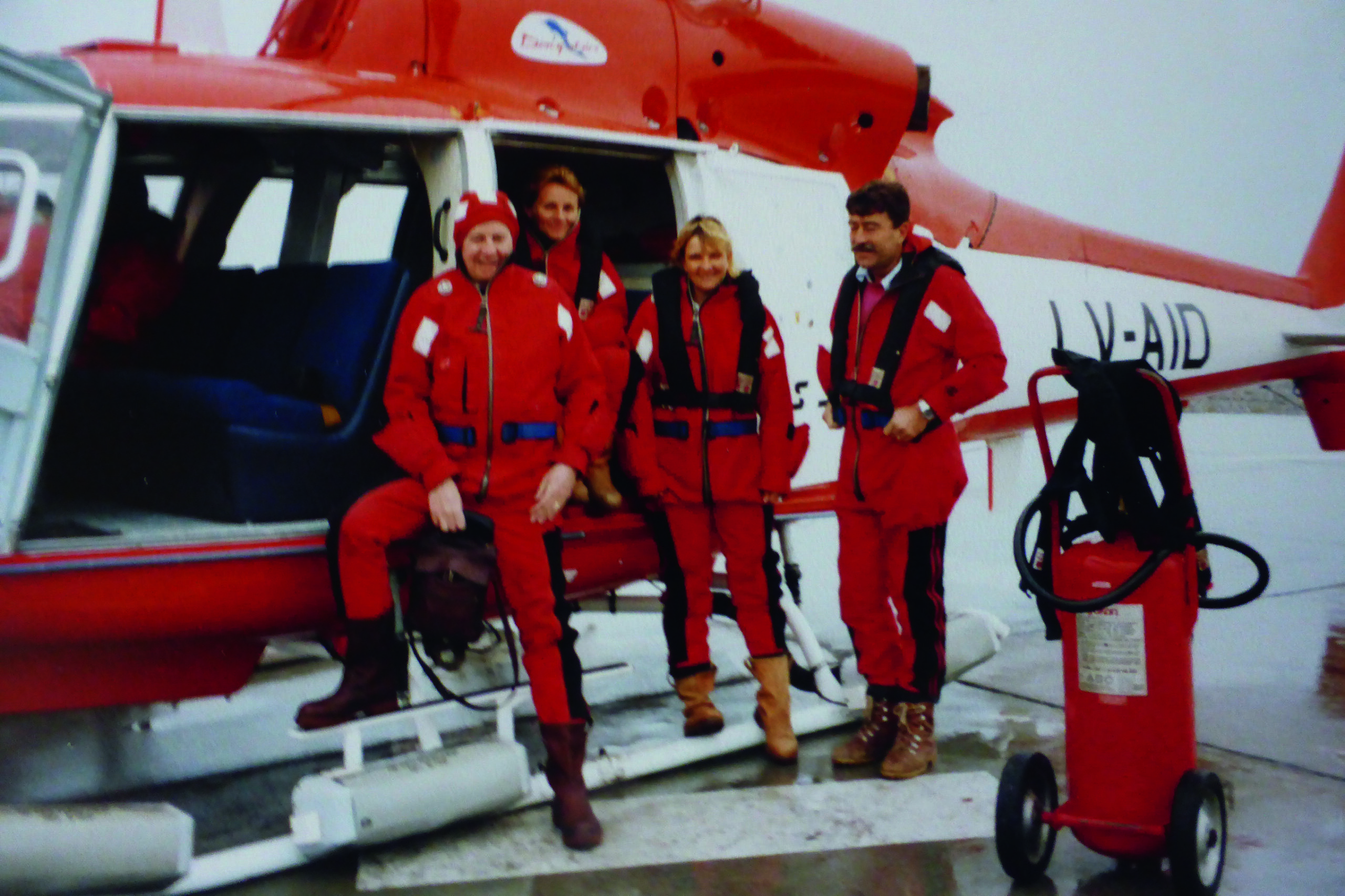
“I liked doing this work but the travelling can get very tiring, so I have reduced it a bit in the last few years,” he continues. “ This means I can spend more time in our 200-year-old house in a village just outside Paris, where I can see the fields all around me but from where we can easily get into Paris for concerts and theatre and the like.
“I have also been involved in training and teaching petroleum-related courses in a number of countries for different organisations,” he continues. “I try to instil in my students a sense of adventure by using real life cases of petroleum systems and encouraging them step by step until they can make the ‘discovery’ themselves. I have realised that I love teaching, especially in my old IFP School, where I still teach topics like petroleum systems, risk analysis, E&P decision-making, asset and portfolio management and upstream economics.”
Be an Explorer
What advice would Bernard give to young geoscientists entering the industry now? “Well, I wouldn’t give too much advice of a technical nature – I think that will look after itself as there is plenty of excellent training available. My advice is more on the human aspects.
“I would tell them to gain as much experience as possible, to go out into the world and open their minds. If you want to be an explorer, then like me, you must be an optimist and persevere. You must go to the rocks and do field geology; we don’t do enough field work these days – just looking at a computer doesn’t tell you what a sand or a carbonate is really like, or what irregularities it may have. A lot of our young people are not trained or mentored enough and can become too reliant on the computer.
“Try to get into operations somewhere, if possible overseas, because you will have to interact with new people and try new things,” Bernard adds. “And when you go back home, don’t get too stuck in the office, make sure you get out and about; and also get some level of authority, maybe leading a small team, and build on that gradually, learning what command is.
“Continue studying, read a lot, attend technical society meetings and create a good network, but get outdoors too; and most importantly – have fun!”

